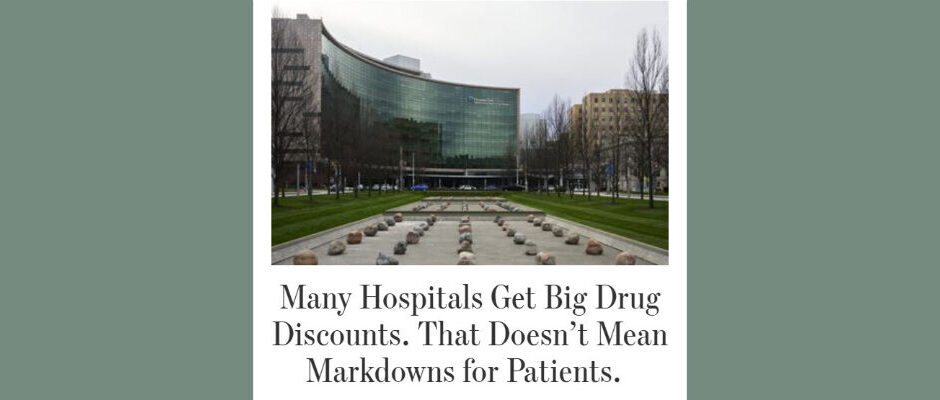Groups that represent 340B hospitals are defending the drug discount program and their role in it in response to a Wall Street Journal article Tuesday that raised questions about how some hospitals qualify for and use the program.
The nation’s top drug industry association said the Dec. 20 story revealed “abuse that policymakers can no longer ignore.”
340B Report was aware that the Wall Street Journal was working on the story and we first broke the news about the detailed investigation just hours after it was published.
Co-written by four reporters, the 2,500-word article analyzed federal 340B program data, census data, and hospital Medicare costs reports. The reporters said their investigation found that:
- Hospitals in low-income census tracts “often extend their 340B discounts to clinics in well-off communities, where they can charge privately insured patients more than those on Medicaid.”
- Eighty-eight of 111 hospitals enrolled in 340B as rural referral centers “weren’t located in areas deemed rural.” The newspaper said more than four-fifths weren’t admitting enough low-income Medicare and Medicaid beneficiaries to qualify for 340B as a disproportionate share hospital. The low-income patient threshold for 340B eligibility is lower for RRCs than for DSH hospitals.
- 340B hospitals write off 2.7% of their patient revenue as charity care, or assistance to needy patients, about the same percentage as non-340B hospitals.
“What the hospitals do with their valuable discounts isn’t always clear,” the newspaper said.
“The data raise questions about the program’s growth and purpose,” it said. “In some cases, the program appears to be bolstering profits in well-off areas more than it is underwriting services in less-privileged neighborhoods.”
The WSJ article ran about three months after The New York Times published its own investigation of a health system’s alleged 340B program misuse at a hospital in a predominantly Black low-income neighborhood in Richmond, Va.
The pair of unflattering looks at 340B hospitals by two of the nation’s leading and most respected news organizations will carry great weight in policy circles. They come at a time when the odds of congressional action on 340B are growing.
Hospital group 340B Health, whose president and CEO Maureen Testoni was quoted in the WSJ story, said the article “includes incomplete and misleading information about how 340B hospitals help patients and communities with low incomes obtain needed health care.”
“Congress created the 340B drug pricing program in 1992 to support the health care safety net that treats very large percentages of patients with low incomes by requiring drug companies to discount their prices for outpatient drugs,” the group said in a statement. “Savings from 340B enable safety-net hospitals, health centers, and clinics to ‘stretch scarce federal resources as far as possible, reaching more eligible patients and providing more comprehensive services.’ Savings from drug company discounts—not taxpayer dollars—pay for the care.”
Bruce Siegel, president and CEO of America’s Essential Hospitals, a group of over 300 metropolitan-based hospitals serving large volumes of low-income and vulnerable patients, said, “Essential hospitals simply could not meet their safety net mission without the support 340B provides. Three quarters of their patients are uninsured or covered by Medicaid or Medicare, and they provide more than a quarter of the nation’s charity care but represent just 5 percent of all U.S. hospitals. Our members are good stewards of the 340B program and use their savings to provide affordable drugs and vital services to our most marginalized people.”
The American Hospital Association said it had no comment.
A Pharmaceutical Research and Manufacturers of America spokesperson said, “The Wall Street Journal article provides an in-depth look at the abuse occurring within the 340B program, abuse that policymakers can no longer ignore. Over the years, large hospitals have taken advantage of lax program eligibility rules and a lack of reporting requirements to generate profits with little to no benefit for patients. There are commonsense ways to fix the program, and we hope this article helps generate a conversation about solutions aimed at making the 340B program work for vulnerable patients.”


